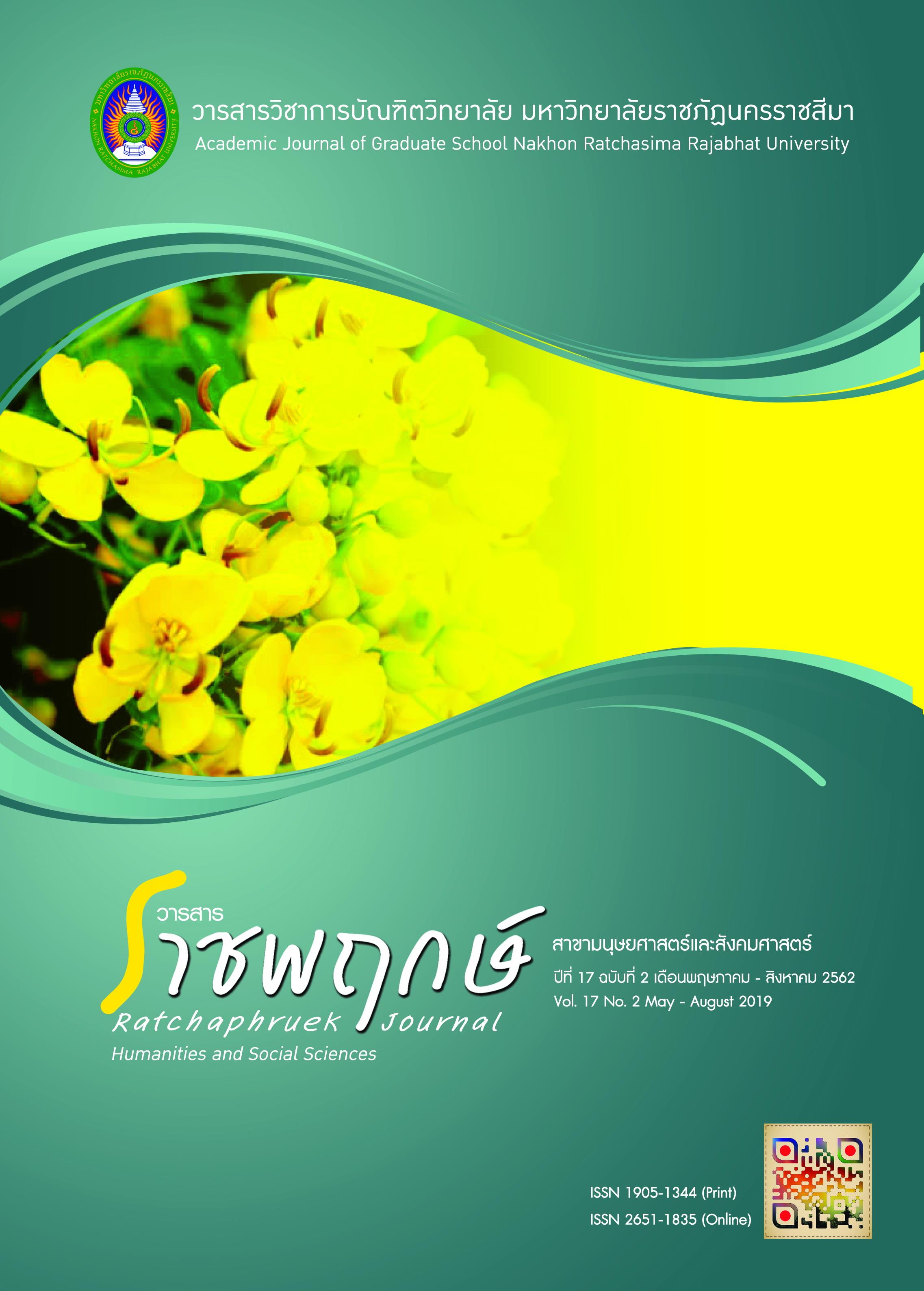การพัฒนาบทเรียนคอมพิวเตอร์ช่วยเรียนภาษาด้วยวิธีการสอนอ่านแบบโครงสร้างระดับยอดเพื่อส่งเสริมความเข้าใจในการอ่านภาษาอังกฤษของนักศึกษาระดับปริญญาตรี มหาวิทยาลัยราชภัฏนครราชสีมา ระยะที่ 2
Main Article Content
บทคัดย่อ
การพัฒนาบทเรียนคอมพิวเตอร์ช่วยเรียนภาษาอังกฤษด้วยวิธีการสอนอ่านแบบโครงสร้างระดับยอด เป็นการพัฒนานวัตกรรมด้านการสอนภาษาอังกฤษเพื่อส่งเสริมความเข้าใจในการอ่านภาษาอังกฤษของนักศึกษาระดับปริญญาตรี ด้วยการวิจัยเชิงพัฒนา โดยดำเนินการศึกษาต่อเนื่องจากผลการศึกษาบริบทจากการวิจัยในระยะที่ 1 สำหรับการศึกษาในระยะที่ 2 นี้ มีวัตถุประสงค์เพื่อ 1) พัฒนาบทเรียนคอมพิวเตอร์ช่วยการเรียนภาษาอังกฤษด้วยวิธีการสอนอ่านภาษาอังกฤษแบบโครงสร้างระดับยอดให้มีประสิทธิภาพตามเกณฑ์ที่กำหนด 2) ศึกษาความก้าวหน้าของผู้เรียนในการทำความเข้าใจในการอ่านภาษาอังกฤษด้วยบทเรียนคอมพิวเตอร์ช่วยการเรียนภาษาด้วยวิธีการสอนอ่านภาษาอังกฤษแบบโครงสร้างระดับยอดที่สร้างขึ้น และ 3) เปรียบเทียบความเข้าใจในการอ่านภาษาอังกฤษของผู้เรียนก่อนและหลังเรียน ด้วยบทเรียน คอมพิวเตอร์ช่วยการเรียนภาษาด้วยวิธีการสอนอ่านภาษาอังกฤษแบบโครงสร้างระดับยอด กลุ่มตัวอย่าง คือ นักศึกษาที่กำลังเรียนรายวิชาภาษาอังกฤษพื้นฐาน 2 ในปีการศึกษา 2561 จำนวน 30 คน ซึ่งได้มาจากการสุ่มตามระดับชั้น เครื่องมือที่ใช้ในการศึกษา ได้แก่ แบบประเมินบทเรียนคอมพิวเตอร์ช่วยการเรียนภาษาอังกฤษด้วยวิธีการสอนอ่านภาษาอังกฤษแบบโครงสร้างระดับยอด และแบบทดสอบความเข้าใจในการอ่านภาษาอังกฤษ วิเคราะห์ข้อมูล โดยใช้ค่าร้อยละ ค่าเฉลี่ย และการทดสอบค่าที ผลการวิจัย พบว่า 1) บทเรียนคอมพิวเตอร์ช่วยการเรียนภาษาเป็นซอฟต์แวร์ที่มีประสิทธิภาพตามเกณฑ์ที่กำหนด 2) ค่าร้อยละความก้าวหน้าของผู้เรียนด้านการทำความเข้าใจในการอ่านภาษาอังกฤษสูงกว่าเกณฑ์ที่กำหนด 3) นักศึกษามีผลการทดสอบด้านความเข้าใจในการอ่านภาษาอังกฤษหลังเรียนสูงกว่าผลการทดสอบก่อนเรียนอย่างมีนัยสำคัญที่ระดับ .05


